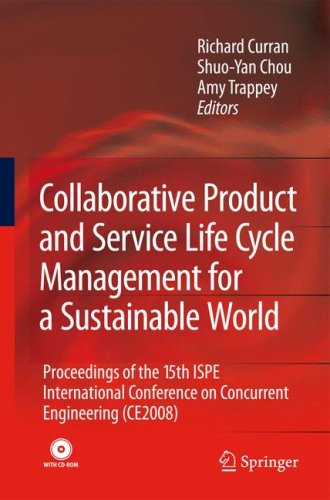

Most ebook files are in PDF format, so you can easily read them using various software such as Foxit Reader or directly on the Google Chrome browser.
Some ebook files are released by publishers in other formats such as .awz, .mobi, .epub, .fb2, etc. You may need to install specific software to read these formats on mobile/PC, such as Calibre.
Please read the tutorial at this link: https://ebookbell.com/faq
We offer FREE conversion to the popular formats you request; however, this may take some time. Therefore, right after payment, please email us, and we will try to provide the service as quickly as possible.
For some exceptional file formats or broken links (if any), please refrain from opening any disputes. Instead, email us first, and we will try to assist within a maximum of 6 hours.
EbookBell Team

4.7
66 reviewsThe recognized requirement for advancements in Concurrent Engineering for sustainable productivity enhancement (improved quality of life) can be viewed positively. The basic aim of productivity enhancement is changing, from primarily seeking collaborative enterprise engineered solutions through a more restricted short-term market view. Rather, it is looking forward to a more expansive truly concurrent engineering approach to development that must be adopted in order to synthesize all of the far-reaching requirements and implications relating to products and their intended operation, service provision and end-of-life. It is already evident in this new century that the desire for sustainable development is increasingly driving the market to reach for new and innovative solutions that more effectively utilize the resources we have inherited from previous generations; with the obvious responsibility to future generations.
There is a need to rethink the way in which we make things in order to revise the ‘cradle to grave’ philosophy of the industrial revolution, which can be viewed as an extreme relative to nature’s principle of sustainable evolution. Human productivity and progress can be positively engineered and managed in harmony with the provision and needs of our natural environment. One century on from the industrial revolution, this is now the time of the sustainable revolution; requiring holistic technological, process and people integrated solutions to sustained socio-economic enhancement. It might surprise Albert Einstein that he rather well encapsulated the nature of this ‘evolutionary struggle’ when he stated: "The world will not evolve past its current state of crisis by using the same thinking that created the situation".
Collaborative Product and Service Life Cycle Management for a Sustainable World
gathers together papers from the 15th ISPE International Conference on Concurrent Engineering (CE2008), to stimulate the new thinking that is so crucial to our sustained productivity enhancement and quality of life.